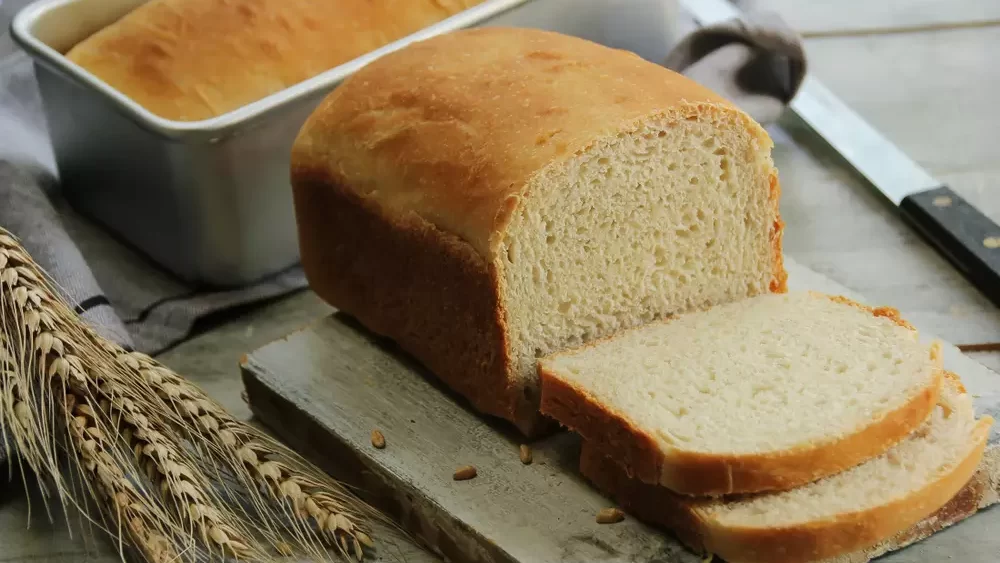Have you ever baked a loaf of bread, only to discover an unexpected vinegar taste when taking a bite? It can be disappointing and confusing, especially when you’ve followed the recipe closely.
In this article, we’ll dive deep into the science of bread making and explore the reasons why your bread may taste like vinegar.
By understanding these factors, you can take steps to prevent this issue in future bakes and enjoy the perfect loaf every time.
The Science of Bread Fermentation
What is Fermentation?
Fermentation is the process in which yeast and bacteria convert carbohydrates (sugars and starches) into alcohol and carbon dioxide. This process is essential in bread making as it helps the dough rise and develop flavor.
Yeast and Bacteria in Bread Making
The key players in bread fermentation are yeast and lactic acid bacteria. While yeast produces carbon dioxide and ethanol, lactic acid bacteria produce lactic acid and acetic acid.
Acetic Acid and Vinegar Taste
The vinegar taste in bread is primarily due to the presence of acetic acid. Acetic acid is produced by lactic acid bacteria during fermentation and contributes to the overall flavor profile of the bread.
In small quantities, it adds a pleasant tanginess, but if the acetic acid concentration is too high, it can result in an overpowering vinegar taste.
Factors Contributing to Vinegary Bread
Overproofing
One of the most common reasons for vinegar-tasting bread is overproofing. Allowing the dough to ferment for too long can lead to a buildup of acetic acid, resulting in the undesirable taste.
Excessive Starter
Using too much sourdough starter or preferment in your dough can also lead to a vinegary taste. A higher concentration of starter introduces more lactic acid bacteria, which in turn produce more acetic acid.
Temperature
Temperature plays a crucial role in fermentation. Higher temperatures accelerate the fermentation process, which can cause an excessive production of acetic acid.

Tips for Preventing Vinegar Taste in Bread
Proper Proofing
To avoid overproofing, monitor the dough’s progress and use the finger poke test to determine when it’s ready for baking.
Starter Maintenance
Maintain a healthy and balanced sourdough starter by feeding it regularly and discarding a portion before each feeding.
Ideal Temperature Control
Ferment your dough at the recommended temperature to prevent rapid acetic acid production.
Common Types of Bread Prone to Vinegar Taste
Sourdough
Sourdough bread relies on the natural fermentation of wild yeast and lactic acid bacteria, which can make it more susceptible to a vinegar taste if not managed carefully.
Rye Bread
Rye bread often contains more lactic acid bacteria than other bread types, making it more prone to developing a vinegar taste if overproofed or improperly fermented.
Troubleshooting Vinegar Taste in Bread
If you’ve encountered vinegar taste in your bread, consider adjusting the proofing time, starter amount, or fermentation temperature to achieve a better balance in your dough.
Frequently Asked Questions
1. Can I still eat bread that tastes like vinegar?
Yes, bread with a vinegar taste is generally safe to eat. The vinegar taste is caused by acetic acid, which is a natural byproduct of fermentation. However, it may not be as enjoyable as a well-balanced loaf.
2. How can I fix my sourdough starter if it’s causing a vinegar taste in my bread?
If your sourdough starter is causing a vinegar taste, try reducing the amount of starter used in your dough, feeding it more frequently, or adjusting the temperature at which it ferments.
3. Can the type of flour used in bread making affect the vinegar taste?
Different flours can influence the fermentation process and may impact the final taste of the bread.
Flours with higher protein content, such as whole wheat or rye flour, can encourage the growth of lactic acid bacteria and potentially lead to a more pronounced vinegar taste.
Conclusion
Understanding the science behind bread fermentation and the factors contributing to a vinegar taste in your bread can help you troubleshoot and prevent this issue in your future bakes.
By monitoring proofing times, maintaining a healthy starter, and controlling fermentation temperatures, you can achieve the perfect balance of flavor and texture in your bread.
So, don’t let a vinegar-tasting loaf discourage you; use the knowledge you’ve gained to refine your bread-making skills and enjoy the delicious results.
